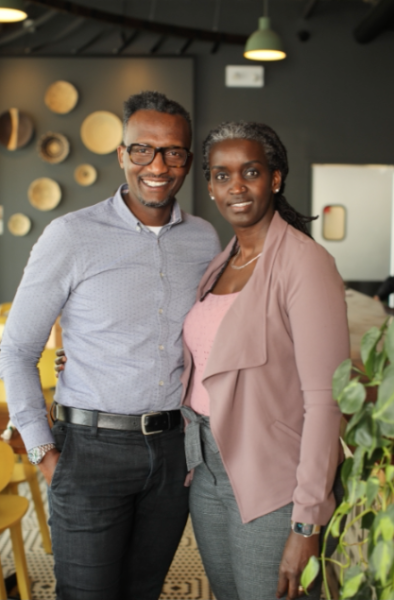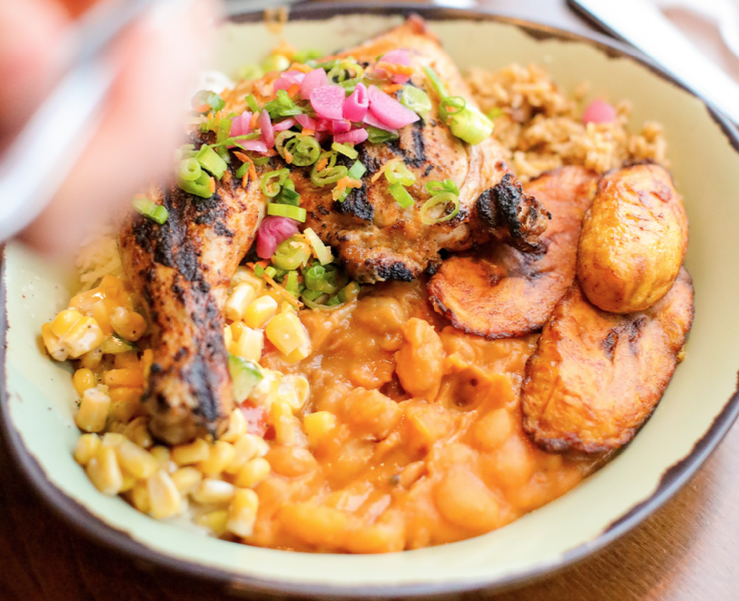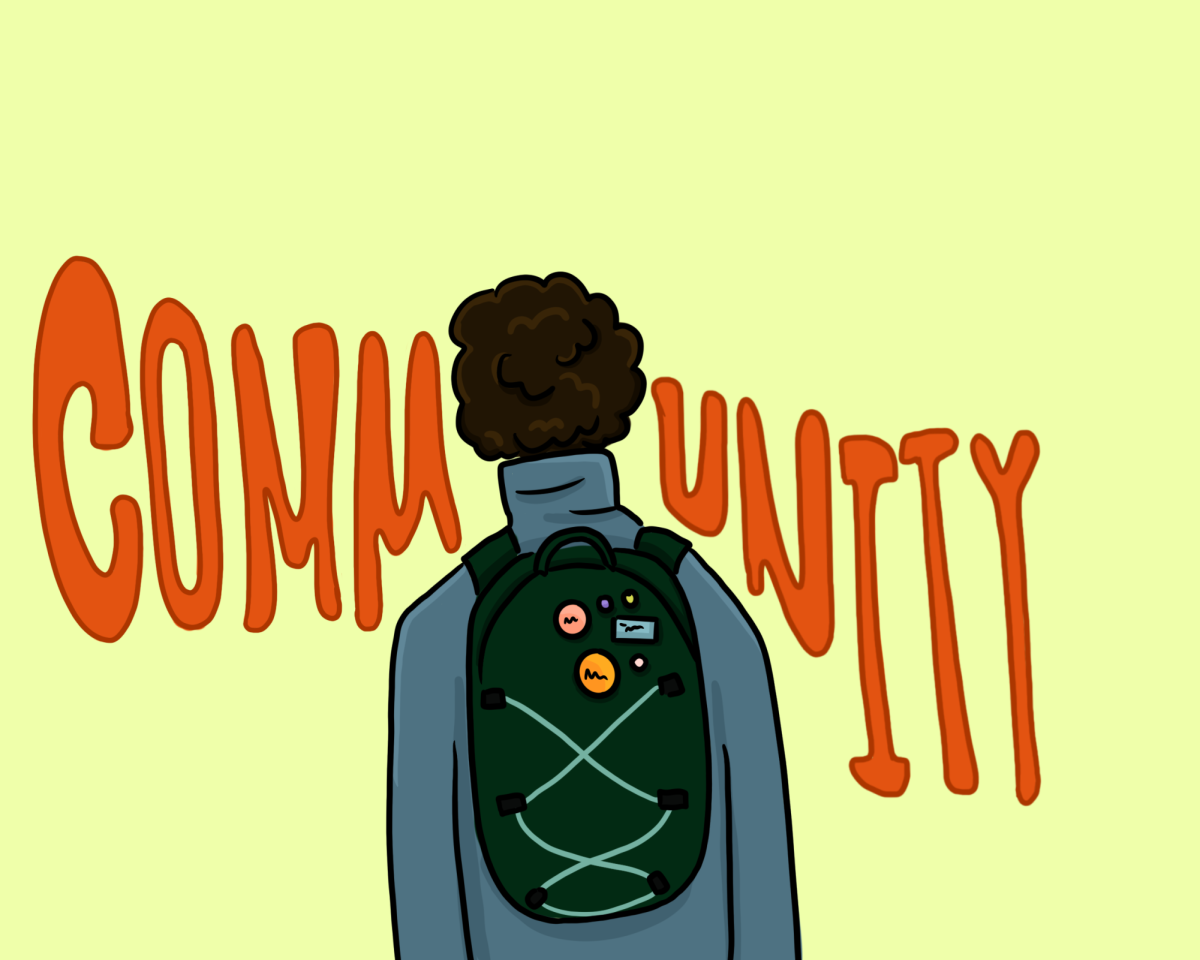Mamba Hamissi arrived at the De- troit Metro Airport as an asylee. When coming to this country Hamissi did not think he would end up owning a restaurant, but he did know the trait was in his DNA.
Hamissi learned to cook from his mother. His mother, being a restaurant owner in their homeland of Burundi located in Eastern Africa, was constantly cooking. He was infatuated with cooking because of the way his mother looked at food.
“One thing I learned from my mom is that the only thing that everybody connects to is food,” Hamissi said. “You can be a lawyer, you can be a doctor but at the end of the day, the only thing that people need every day is food. I always said to her ‘This is a lot of work, why do you keep doing this?’ and she said ‘it’s because this is the only way you can change people’s lives.’”
But as Hamissi grew up in Burundi, his mother feared his passion for cooking seemed far too feminine for her son.
With the traditional African belief of “cooking is not made for men” strong in his mother’s mind combined with the fear that cooking wouldn’t be a path that would provide financial stability for Hamissi, she urged him to go to school to earn a degree.
Hamissi went on to get his Masters in Business and continued to cook. He then married his wife, Nadia Nijimbere.
In Burundi, Nijimbere was a human rights activist who worked for a nonprofit that served children. Nijimbere was forced to flee the country as quickly as possible when her work raised questions about certain systems.
Hamissi’s sister lived in Grand Rapids eight years previous to Nijimbere’s arrival and told the couple about the “Freedom House,” an organization in Detroit that aids refugees.
The couple went into hiding until Nijimbere was able to receive her visa. Though it left them flooded with fees and drained of financial resources, Nijimbere was granted asylum for her own safety.
“We didn’t even know where she was going, but she had to leave the country,” Hamissi said. “It was a very stressful moment.”
 Nijimbere came to Detroit in 2013, and only upon arrival came to know she was pregnant with twin girls.
Nijimbere came to Detroit in 2013, and only upon arrival came to know she was pregnant with twin girls.
Hamissi and Nijimbere were separated for two years. He applied and was denied an asylum visa twice and got accepted on his third attempt. When he arrived, he would meet two little girls that were his own for the first time.
Hamissi arrived in November of 2015, experiencing the cold for the very first time. He found it difficult to fit into a routine his family had already created and out of place in his own family.
The transition of being a father was one of the most difficult parts for Hamissi.
He felt a deep guilt for the lack of being there for his children, which is something he continues to struggle with.
“It’s something I’m not gonna catch up with, and I think I had that guilt for a long time,” Hamissi said. “So I have to try to catch up with them, you know, stay home so we can build those bonds and we can be close but it’s still there.”
Along with meeting his newly grown family, Hamissi had to adjust to country he didn’t know where he didn’t speak the language.
The first thing he noticed about America was the size. Everything was bigger: the cars, the roads and the houses made it that much more difficult to navigate.
Though the adjustment was difficult, he felt slowly welcomed.
“We were knocking on the door and Detroit opened for us to come in,” Hamissi said. “We can knock on other city’s door and they won’t open, so we are grateful that Detroit didn’t even question us.”
Baobab Fare creates dishes with simple ingredients. They made this dish with a rice base and topped it with fried plantains. “I’m not a fan of cooking with a lot of ingredients because I believe that’s how we have all these problems in the world,” Hamissi said.
Hamissi especially felt outside support when he first had the idea to start a restaurant of his motherland’s cuisine.
But when he first proposed the idea to Nijimbere, she was against it. In the relationship, Hamissi has always been the risk taker while his other half was logical. The prospect of a restaurant excited Hamissi as much as it scared him and that’s what he loved about it.
“If I’m working on something and it doesn’t challenge me, something’s wrong with it,” Hamissi said. “It has to be hard, tough for me to believe this is a great idea.”
Baobab Fare started in 2017 after “The Hatch Com- petition” which was Hamissi’s chance to prove to Nijimbere that a restaurant was an idea to fight for. Hatch is a month-long competition for Detroit small business owners, where Hamissi had to cook his way through and beat more than 200 businesses.
The couple won the contest and the $50,000 prize in 2017, changing their lives. They were set to open the restaurant in spring of 2020 right when COVID-19 swept the nation. They were forced to open in early 2021, still during the pandemic, not sure if anyone would come.
“We didn’t have a choice to open it,” Hamissi said. “Coming to the United States was not a choice and speaking and learning English was not a choice. I’d even say opening Baobab Fare was not a choice. Opening in the middle of the pandemic wasn’t a choice. I believe when you have choices you get lost in those choices. Because you have a lot of options and sometimes you miss the opportunity that can get you where you want.”
Through all the challenges, Baobab Fare started to gain traction. By February 2023, Hamissi and Nijimbere were named semi-finalists in the James Beard Awards for the second time.
In March 2023, Hamissi went on to win an episode of “Chopped,” a cooking show on Food Network. It was there where Hamissi first took pride in being a chef. It has been difficult for him to feel pride in how he cooks because of how he was raised. It’s why he leaned into his role as a businessman when building Baobab Fare rather than his cooking skills. At Chopped, he finally felt proud of himself though he admits Nijimbere is the better cook.
Hamissi went on “Chopped” not to show off his vast cooking skills but instead to tell a story.
“I’m more of a storyteller than being a businessman or a cook or anything,” Hamissi said. “There is this connection with everything in a story. That’s how you connect with people.”
Not only did he want to tell the story of Burundi, but also the story of Detroit. His unique story contains an intersection of two places vastly different from each oth- er in a way that also highlights how similar they are.
“Burundi and East Africa are very bad at telling our stories,” Hamissi said. “We never get a chance to tell our own story. Somebody else is telling your story. I wanted to tell the story and tell the story of Detroit. We don’t get platforms to talk. I was like, let me go to use that platform so I can talk about these stories. That’s the only motivation for me.”
Building connections and trust with his customers is an essential part of why Hamissi tells his stories as well. Hamissi understands it might be daunting to try new cuisine and thinks that if a story can go along with the new food it’s more appealing to try.
“You cannot trust the food, but trust me — and if you trust me, try the food,” Hamissi said.
He also wants to convey a message dear to his heart that addresses ingredients and overuse. Hamissi’s mother used to use seven simple ingredients for her meals and would create everything with them, it’s where he developed a similar philosophy and way of cooking.
“I’m not a fan of cooking with a lot of ingredients because I believe that’s how we have all these problems in the world,” Hamissi said. “Climate change, high prices are not needed. We are doing things that are not needed and it’s hurting this generation.”
Every facet of Baobab Fare tells a story, including its name. “Baobab” translates to “the tree of life” while “fare” signifies cuisine.
As Hamissi filled out the first application for his restaurant, someone asked about the name of the restaurant. Immediately Baobab came to his mind for two reasons: one it was the name of his aunt’s restaurant in Burundi, and two it represented his situation.
“The tree is because me and Nadia are here in Detroit like that tree in the desert,” Hamissi said. “We are going to be a powerful tree in the middle of Detroit.”










